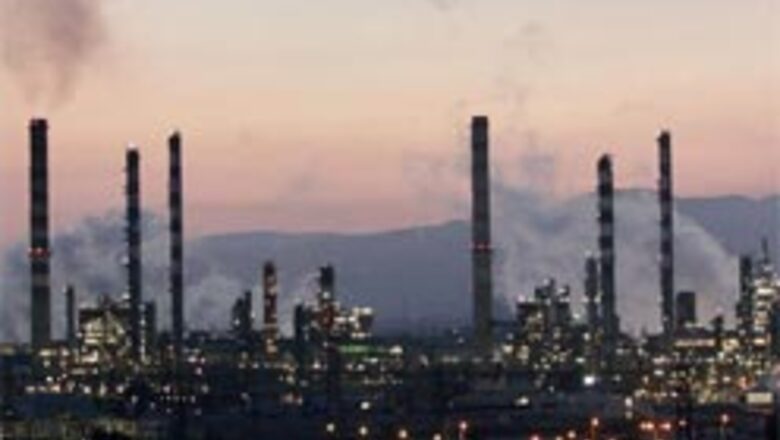
views
Mumbai: India's oil refiners say they could lose potential revenue of as much as Rs 1,000 crore over the next 12 months because of the government's decision to remove customs duty on aviation turbine fuel (ATF). This, coupled with accumulated losses from the high cost of crude oil imports until recently, could crimp their ability to invest in expansion, they say.
The Government has scrapped the 5-per cent import duty on ATF, announced a 90-day credit period for fuel purchases by airlines and a freeze on landing charges at airports. Though, Minister for Civil Aviation, Praful Patel, denied that the set of measures is a bailout for the loss-making airline industry, observers have called it a 'helping hand' at least.
"Oil companies are already bearing the cost of extended credits, softer repayment of dues for the airlines. Removing duty protection for the oil refiners is an additional charge," Spokesman of Indian Oil Corporation N Srikumar told Network18.
Since local prices are set on parity with tax-included import costs, the duty was bringing in 5 per cent additional revenue on ATF sold locally too. Its removal will now eat away that revenue.
The Government's help for the airlines coincides with the unprecedented challenges being faced by refiners. After absorbing losses through the crude price rally until July 2008, the companies have declared record losses of nearly Rs 13,000 crore for the fiscal second quarter to September.
The current clamor for a cut in the retail prices of petrol and diesel in line with the recent sharp fall in crude oil prices is a further threat to oil companies. Though, the Oil Ministry is resisting a move to cut the prices of automobile fuel, the expediency of an election year could force the Government's hand and further choke the cash flow of oil companies.
In the last fiscal year, oil companies suffered a revenue loss of more than Rs 70,000 crore and the Government compensated the losses only for about Rs 32,000 crore through the so-called oil bonds. In this fiscal year, the losses are projected to be Rs 1.48 lakh crore, half of which will be compensated by oil bonds, which convert those losses into government debt.
Aviation fuel prices have been falling for the past six months, with the largest cut of 17 per cent coming through on November 1. So was there a need to cut customs duty now?
Airline industry analyst Kapil Kaul, who is also the India-chief of the Sydney-based Centre for Asia Pacific Aviation (CAPA), says, "Indian carriers have been running up losses not only because of high oil prices, but several other factors like adding too much capacity and the inability to control costs.’’
High oil prices have impacted every airline, but several global carriers have been able to make profits despite the rally in oil prices over the past two years. They are now collecting a fuel surcharge of close to Rs 3,000 a ticket from the passengers, adding substantially to their revenues. The surcharge has not been reduced even though ATF prices are now at November 2007 levels, when the surcharge was Rs 1,000 lower.
In the past, too, airlines have found themselves in a tight situation. Close to a decade ago, private airlines such as Modiluft, NEPC and East West Airlines went belly up after being unable to sustain losses. Then, the problem was the inability to manage costs with rapid growth. There was hardly any Government intervention or bailout.
The dues that the failed airlines left behind were never recovered by the oil companies and the Airport Authority of India, despite much litigation. Oil industry officers were only castigated for their high exposure to those airlines. "When the airlines folded up and our money was stuck, we were interrogated by the CBI to find out why we gave them a credit line” the head of an oil company recalled.
However, the stronger carriers among them like Jet Airways and Air Sahara, were able to survive the turbulence.
In the intervening decade, the industry increased its reach among the population, especially after the entry of the low cost carriers. While it was earlier considered an elitist sector, it is now acknowledged as being essential for strong economic growth.
Passenger numbers have grown at world-highs in 2007. The new profile seems to have brought in a greater government involvement in the carriers. Patel recently took credit for convincing the Jet Airways chairman Naresh Goyal to take back his sacked cabin crew.
The Finance Ministry is also said to be talking to risk-averse banks to lend to airline companies. Meanwhile, the airline industry has so far been immune to all attempts at resuscitation.
(Cuckoo Paul is Associate Editor at the new business magazine to be launched by Network 18 in alliance with Forbes, USA)



















Comments
0 comment